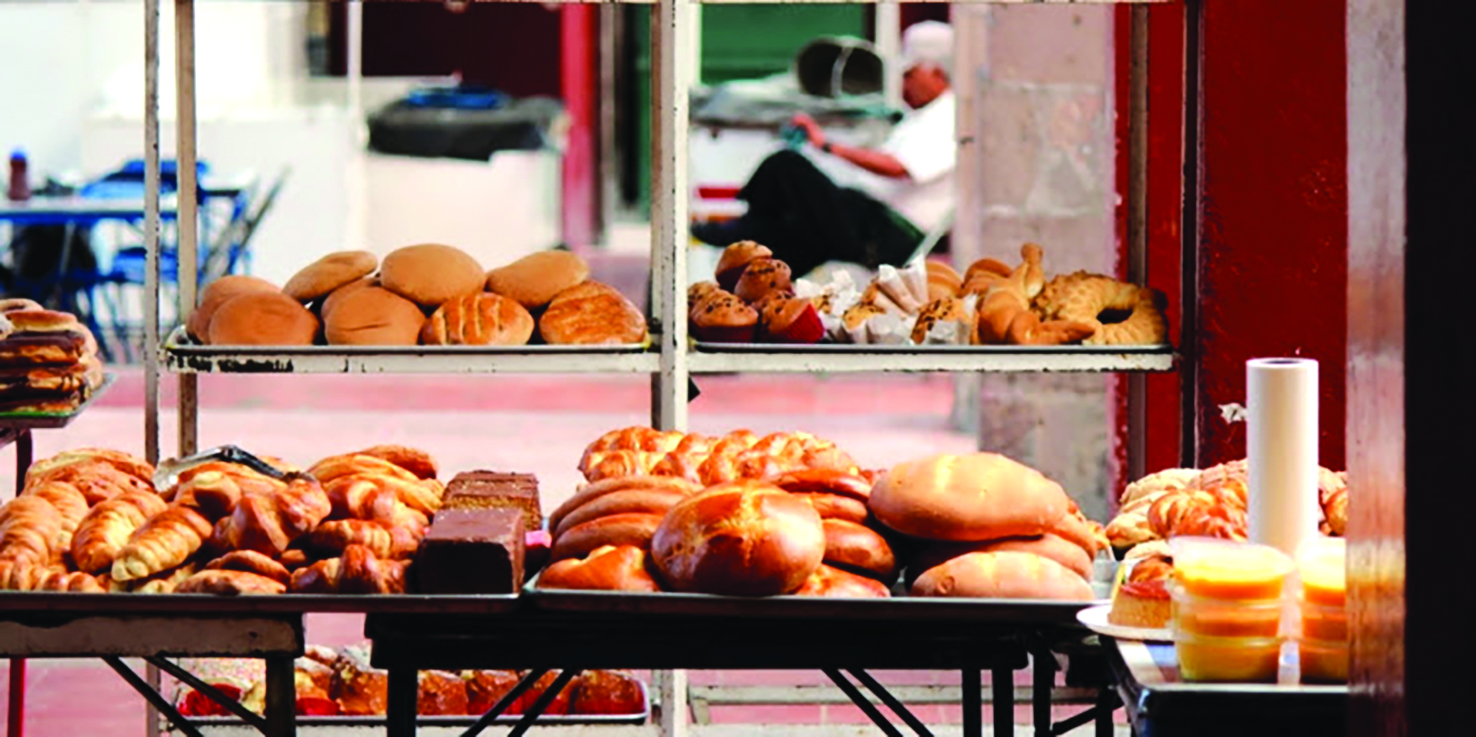An important part of Mexico’s past and present are its bread shops, which are found on many busy corners of its towns and cities. When you’re hungry, there’s nothing quite as enticing as the smell of fresh baked bread wafting out from the local panadería.
It’s not unusual to see people hanging around inside the shop, metal tray and tongs in hand, waiting for the next batch of hot rolls —oval-shaped bolillos or flat teleras— to be wheeled out from the ovens and tossed into the bins.
Then there are the shelves organized with a large variety of pan dulce —sweet bread— each piece with its own particular name. Among the most popular are chocolate or vanilla coated conchas (shells), the sugar-covered bigotes (moustaches) or moños (bows), the plain mantecadas (cupcakes), ear-shaped pastries called orejas (ears), and the inevitable cuernos (croissants).
Then there are the crumbly cookies called polvorones in various colors, the long, glazed pastries known as banderillas, and chinos, largish pieces of cake baked in wads of thick grease-proof paper, usually sprinkled with small pieces of walnut.
In an era gone-by, the local panadería would often be the focal point of a bustling street corner, and in more innocent times than these, an evening meeting place for young lovers, particularly among the working classes. This was so common that the expression “¿a qué horas vas al pan?” (What time are you going for bread?) became a joke as a chat-up line.
A common and natural next-door neighbor to the bread shop is the small neighborhood grocery store —tienda de abarrotes— selling cold cuts, canned foods, soft drinks and liquor.
Some of these scenes have been replaced over the years by the proliferation of multi-purpose supermarkets with their own bakeries, particularly in the cities, and a number of the old traditional bread shops have closed. Some are unable to compete with the variety of fancy doughnuts, and the slick presentations, or the price advantages of buying in bulk enjoyed by the large chains; and many, if not most of the them, have lost their charm.

























